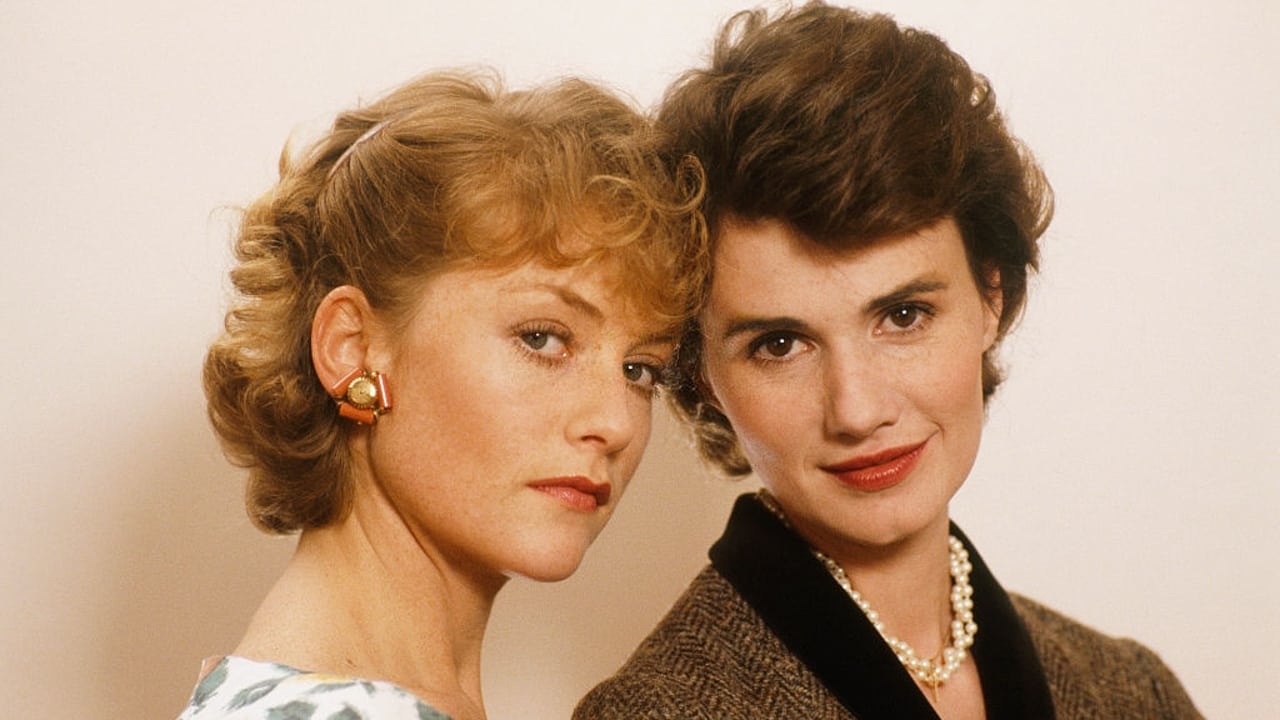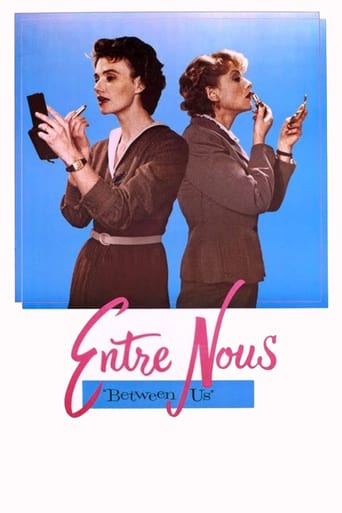

This movie is the proof that the world is becoming a sick and dumb place
... View Morei know i wasted 90 mins of my life.
... View MoreI didn’t really have many expectations going into the movie (good or bad), but I actually really enjoyed it. I really liked the characters and the banter between them.
... View MoreIt is encouraging that the film ends so strongly.Otherwise, it wouldn't have been a particularly memorable film
... View MoreThe movie concerns two women who survive WWII and form a friendship in post-war France. However, as the film unfolds, it seems that the underlying message is "men stink". While I would agree that there are a lot of lousy spouses, the movie just seemed way too "black and white" in presenting the women as victims. These husbands either squander their money on selfish pipe dreams or slap their wives silly and make passes at other women. The women put up with this abuse for a while, but find relief through affairs (such as a quickie on a train with a stranger) and ultimately divorce. This should really appeal to women who have lived through these types of marriages, but I can't help but want to shout "DON'T BLAME ME--I'M A GOOD GUY!!!".
... View MoreFor years, I've heard glowing praise of this movie....now that I've seen it, I feel the praise is largely undeserved. The movie gets off to a bad start: It's unclear (at least from the subtitled version I saw) where the heck the characters are. It's obviously Europe and some kind of World War II era camp, but that's all I could glean....And in the early scenes with Miou Miou, where her first husband gets shot, it wasn't clear who was doing the shooting and/or why. According to the description on this site, it was the "resistance," whatever that means....(to be fair: perhaps most Europeans in 1983 understood the history without needing reference books, but this U.S. home video viewer in 2002 would have appreciated a bit more historical context)As for the rest of the film....Slow, slow, slow. And with a lot of extraneous elements that never seemed to go anywhere. Frankly, I was hoping for more romance between the two women, which you never really see. You just get Isabelle Huppert's husband being angry all the time. And for the record, I didn't like the way the Miou-Miou character kept insulting her young son. None of these characters were particularly likeable, not even Isabelle Huppert. The ugliness of the characters detracted from my enjoyment of this, too.I suppose this was considered really "avant garde" or something, in terms of subject matter, back in 1983, when it was released. But today it just falls really flat. A disappointment.
... View MoreThis is a very moving film. I think I found it more sad than some of the other reviewers. It's really about the decline of a marriage through the incompatibility of the couple.The incompatibility is brought home to the woman by her class, education, style, grace and education. (The sophisticated one, played by Miou Miou is just extraordinary acting). In essence, the sophisticated woman causes the central woman (played by Isabelle Huppert) to realize that her husband is a dolt, and that they share far more than she and her husband. The wonderful thing about the movie is that though the husband is a boob, insensitive and sometimes prone to violent anger, there is no doubt that he slaves for his family, is very humble, and deeply loves his wife and his two daughters - no question about it.We get to see his pain as his wife falls out of love for him, his sometimes violent jealousy of the woman who has made his wife see him differently, and his heartbreak. It's quite profound. Those who say it all ends happily were watching another movie!I loved the periods, the costumes, the settings - from Paris on Liberation Day through the 1940s and 1950s. Although it's the daughter's story, we see much of how the couple earlier met, married and began their married life. You will love it - it's more fast-paced than many French movies, and wrenching.
... View MoreSubtitles are unevenly paced, often uncoupled with dialogue, in the version I saw. I had to rewind frequently and sometimes use the pause button to catch everything.
... View More